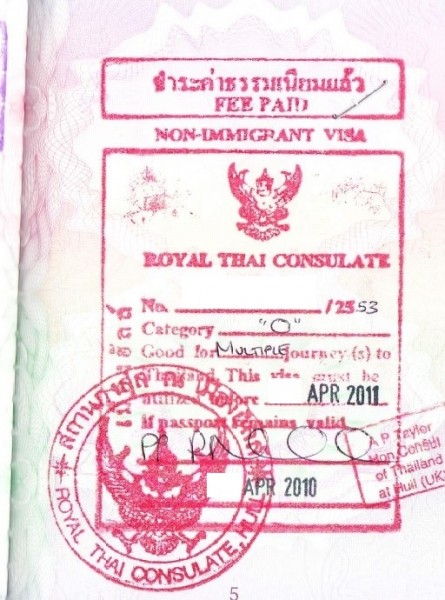Many people want to stay in Thailand long-term, and you’ll be glad to know that there are many visa options available that allow you to do this. No matter what your age, there is a visa option that will allow you to stay. Click here to know how to wire money to/from Thailand

Retirement Visa
For those over 50 that meet the income requirements, the easiest option for staying in the country long-term is to get a retirement visa. To get a retirement visa you need to be over 50, and show a regular monthly income of 65,000 baht ($2,100, £1,360) or savings (in a Thai bank account) of 800,000 baht ($26,000, £17,000). For proof of monthly income you’ll need to get a letter from your Embassy. If showing savings, the money needs to have been in a Thai bank account for a minimum of two months for your first retirement visa, and for three months for future renewals. The cost of a retirement visa is 1,900 baht ($62, £40).
Before applying for a retirement visa, you need to be in possession of a non-immigrant visa. You can either apply for this is your home country before coming to Thailand, or you can arrive on a tourist visa, convert to a non-immigrant visa in Thailand, and then apply for a retirement visa. The cost to convert a tourist visa to a non-immigrant visa is 1,900 baht.
Once you have your retirement visa, you’ll need to report your address to immigration every 90 days that you’re in the country. In some provinces (e.g. Bangkok), this can be done by post, but in other provinces it needs to be done in person.
If you want to leave the country while you have a retirement visa, you’ll need to get a re-entry permit before you leave. The cost of this is 1,000 baht for a single-entry permit, and 3,800 for multiple-entry permit. If you leave the country without getting one, your retirement visa will be cancelled, and you’ll have to re-apply when you return.
Education (Student) Visa
For those that aren’t over 50, or who don’t meet the income requirements, there is the option of getting an education visa. For most people this means enrolling for a Thai language course, but these visas are also available for other educational courses, such as Thai boxing. Many language schools will apply for the visa for you, so it’s really easy to sort out. With a ED (student) visa, you’ll be entitled to stay for 90 days, and then will need to extend the visa for another 90 days. Visa extensions cost 1,900 baht, and you don’t need to leave the country.
The beauty of this visa is that you only need to attend four hours of lessons per week. That could mean one hour a day for four days, or two hours a day for two days. As you’ll be staying in the country long-term, it’s also a great idea to learn the language, as you’ll get more out of your stay here.
The ED visa can be extended for a total of three years, although you’ll need a new letter from the Thai Ministry of Education every year. Your school or college will be able to arrange this for you.
Marriage Visa
For those that are married to a Thai citizen there’s the option of a marriage visa. The income requirements are around half those of the retirement visa. If you’re coming to Thailand for the first time, then this isn’t going to be an option for you, but I mention it as a long-term consideration for those that might end up getting married here.
Other Visa Options
Many people opt to arrive on a tourist visa, or visa on arrival, and then do border runs when their current visa expires. For many nationalities you’ll be able to get a 30-day stay if arriving by air and a 15-day stay if arriving by land. I know many people that use this option, and most of them always seem to be complaining about the constant border runs. To me it seems simpler to apply for an ED (student) visa than have to do border runs. But if you’re only planning to stay a few months, then this could be an option. There are companies in most large towns that do daily border runs.
Hotels In Thailand
If you’re planning to come to Thailand, check out the discount hotels available via the Agoda link below.

